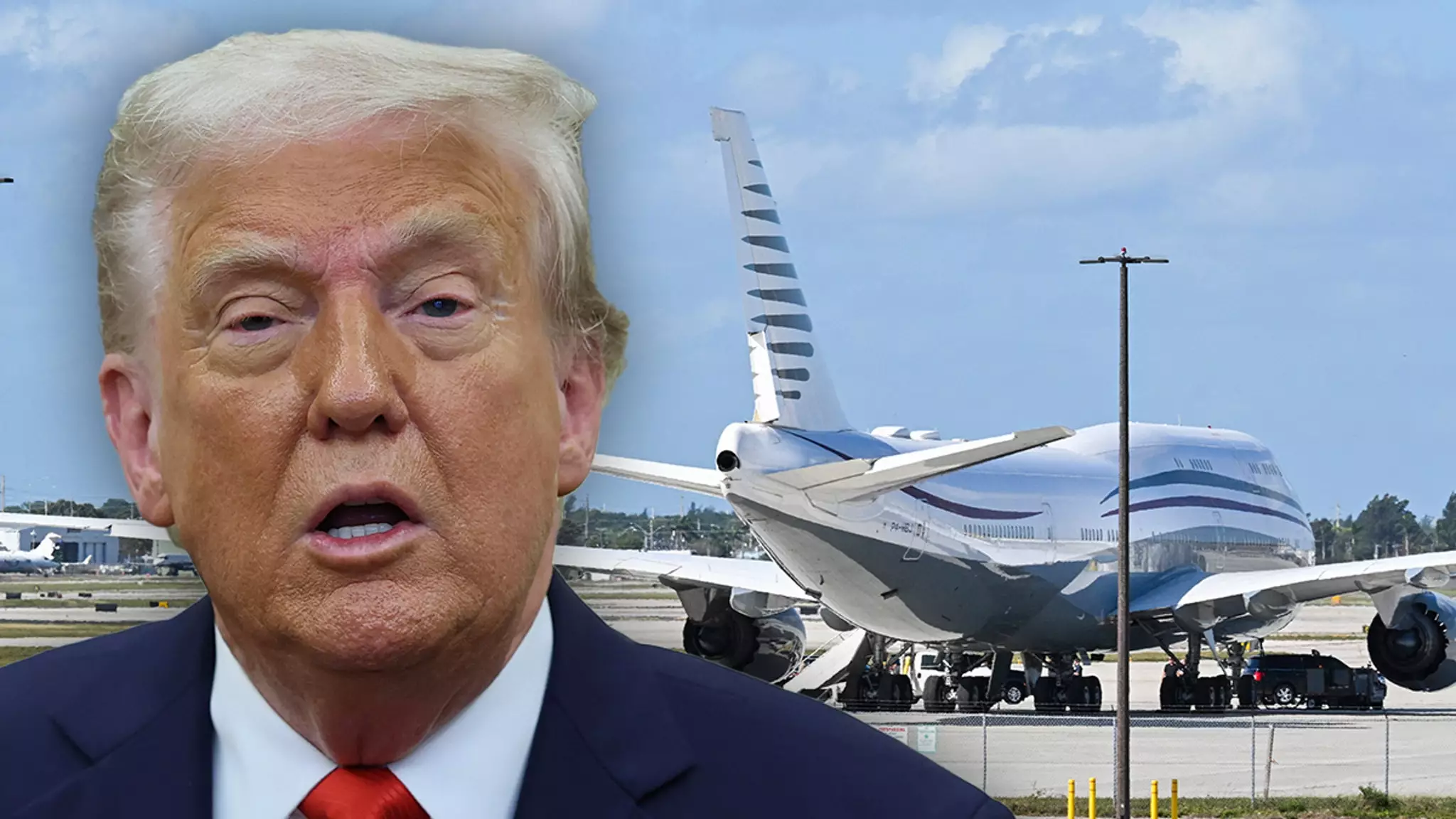In an era where transparency and ethical governance are focal points of scrutiny, the recent revelation about Donald Trump’s alleged acquisition of a luxurious Boeing 747-8 from the Qatari royal family raises eyebrows and ethical questions. Dubbed the “flying palace,” the aircraft, valued at an astonishing $400 million, is not just a remarkable engineering feat but a potential weighty symbol of foreign influence within the contours of American political life. It reflects the audacity of leaders to interweave personal prestige with governance, prompting critical discourse on the implications of such exchanges between nations.
Navigating Legal Quandaries
Trump’s enthusiastic promotion of the aircraft on Truth Social—declaring it a gift to the Defense Department—brings forth a muddy legal terrain. While Trump’s team asserts that the plane’s official ownership will lie with the U.S. Defense Department to circumvent constitutional restrictions on foreign gifts to government officials, the circumstances surrounding its acquisition cannot be dismissed lightly. This legal justification contends that since the jet benefits the government rather than an individual, it somehow sidesteps the ethical dilemmas surrounding gifts, posing the question: can the spirit of the law be so easily sidestepped?
Furthermore, the implications of such a gift are magnified by ongoing partisan discourse. Trump’s assertion that Democrats are “World Class Losers” for opposing what he frames as a pragmatic solution to replace aging presidential aircraft highlights the political weaponization of governance and luxury. This maneuver ignites an ongoing debate about the nature of political gifts and the extent of foreign influence in American politics.
The Power Dynamics of Foreign Relations
In a global political landscape where perceptions of power are paramount, the optics of receiving such lavish gifts from foreign leaders can potentially skew the balance of diplomatic relations. On one hand, presents symbolize goodwill; on the other, they may inherently encourage dependency or linger as unspoken obligations. An extravagant jet from a monarchy may imply expectations, weaving narratives of favoritism and complicity into the fabric of international relations, compelling American citizens to question who ultimately wields power in these engagements.
The timing of this event, too, is significant. As Trump prepares for a trip to the Middle East, including a stop in Qatar—where his family’s business dealings have raised suspicions of conflicts of interest—this situation casts an even darker shadow over the intersections of personal and official business. The dealings his family engages in may eclipse the lines of propriety traditionally maintained by public servants.
A Reflection on Luxury Versus Duty
The lavish nature of the Boeing 747-8 raises fundamental questions about the duties and responsibilities of a leader. When luxury becomes the focus, it can obscure the essential objectives of leadership: service, integrity, and accountability. A ruler’s commitment to the people should take precedence over spectacles of extravagance. The juxtaposition of using taxpayer resources against the backdrop of ostentatious gifts from foreign powers serves to highlight the dissonance present in modern governance.
The discourse surrounding this extravagant gift transcends party lines. It places a spotlight on the necessity for rigorous ethical standards and underscores the importance of leaders exhibiting restraint in their personal luxuries while in public office. As discussions unfold about the constitutional implications and ethical considerations at play, the American public must remain vigilant, ensuring that leaders prioritize the nation’s interests above mere appearances.

